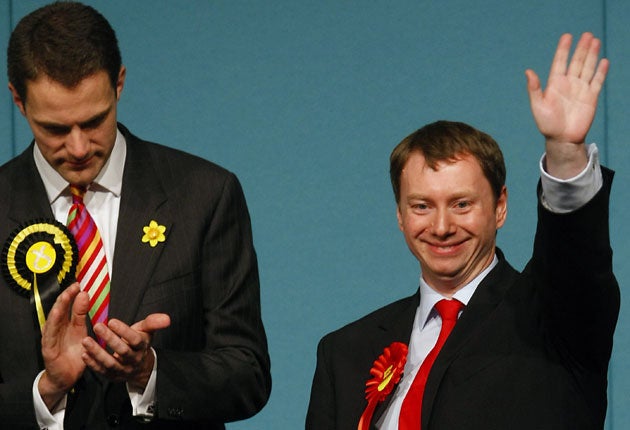John Curtice: Labour's Glasgow victory is not all it seems

At first glance the Glasgow North East by-election result was stupendous for Labour. The party did not just defend with ease a seat that socially is almost identical to next door Glasgow East, a seat it had lost spectacularly to the SNP only last year. Its candidate actually managed to win 6 per cent more of the vote than former Speaker, Michael Martin, secured in 2005. That makes it Labour's best by-election result since it came to power in 1997. What stronger signal could there be that Gordon Brown has finally turned the electoral corner?
However, a closer look suggests a somewhat more sober assessment is in order. One reason is that the comparison with Michael Martin's vote as Speaker four years ago is a little misleading. At 53% his support was unusually low. Seemingly he lost votes to a Socialist Labour candidate who managed to win no less than 14% - probably because some voters were confused about who was the 'Labour' candidate. When Mr Martin last stood as a Labour candidate, in 1997, he managed to win no less than 71%, well ahead of what Labour managed on Thursday.
But the more important reason lies in the way in which Labour secured its success. Labour's campaign had two main themes. First, the party argued its candidate, Willie Bain, was the only candidate living in the constituency, and thus the only one who really understood the needs and concerns of one of the most socially deprived parts of Scotland.
Second they focused on a claim that the SNP Scottish Government was 'ripping off Glasgow'. Labour presented itself as a vehicle to express discontent with the incumbent government in Edinburgh, rather than as the party in power in Westminster, while the SNP struggled to cope with having a record to defend.
Labour played much the same hand in the last Scottish by-election in Glenrothes a year ago. There too it achieved unexpected success. But it is not a hand that can be played in England, where there is no ambiguity about who is in power. There Labour has no option other than to defend its own record, and then it runs into trouble, as illustrated by its heavy defeat in Norwich North last summer. And of course it is in England, not Scotland, that next spring's general election will be won and lost.
Moreover, in England the challenge to Labour next year will come from a very different direction - from David Cameron's Conservatives. In Scotland that challenge is still largely noticeable by its absence. The Tories could do no more than just manage to save their deposit in Glasgow North East and just avoid being overtaken by the BNP. Their vote was even down on what they managed to secure locally in 1997, when the party suffered a whitewash north of the border. It seems almost inevitable that any government led by Mr Cameron will be backed by no more than a handful of Scottish MPs.
Such limited excitement as there was during the final phase of the campaign was generated by rumours that the BNP were going to make a breakthrough. Hitherto, the party has struggled to make much impact in Scotland, where 'Britishness' lacks the potential poplar appeal it has in England. Nevertheless, Glasgow North East, which has been home to a significant number of asylum seekers, had already proved something of a 'hotspot' for the party. In the event its 4.9% of the vote was only a little above the 4.3% it won locally in the European elections in June. Little sign here, it seems, of a 'Question Time' effect.
John Curtice is Professor of Politics, Strathclyde University

Join our commenting forum
Join thought-provoking conversations, follow other Independent readers and see their replies